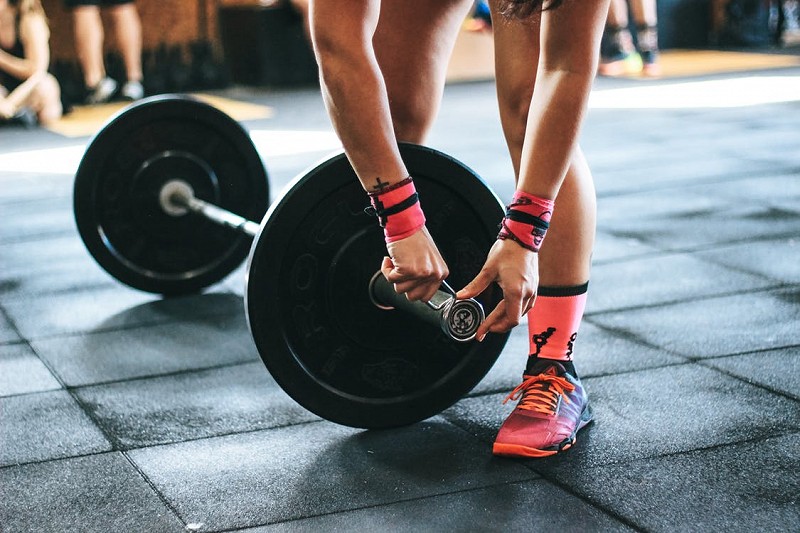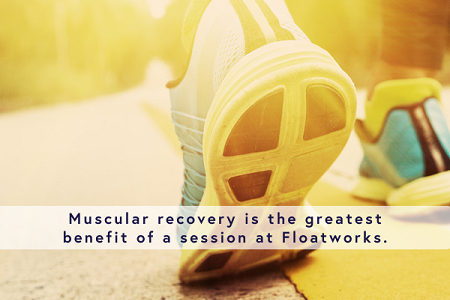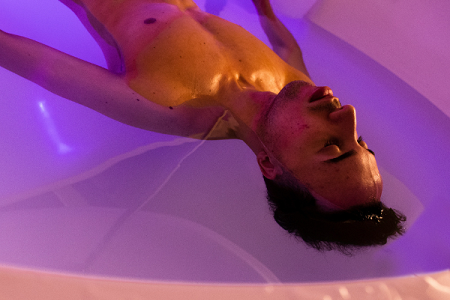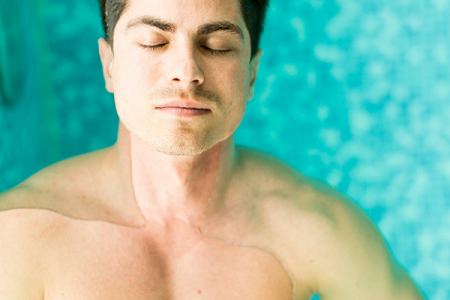A tale of floating and bodybuilding
Personal trainer and bikini fitness bodybuilder Kasia Romanowicz shares how floating helps her prepare for international competitions…

The human body is capable of some incredible feats. And as marathon runners, racing drivers, and indeed any sportsperson at the top of their game will tell you, reaching that record-breaking, glass-ceiling smashing level of fitness takes a huge amount of mental and physical work.
The fruits of that effort are perhaps no more obvious than in bodybuilders. Their very bodies are the physical result of their hours and hours of training to be the best they can be. But what is bodybuilding, exactly? For many of us, we’ll only have come across its caricature in the media, or film and television, but the dedication and drive it takes is not anything to be scoffed at.
Are you ready to crush it this week?#Bodybuildingcom #BuildYourBody pic.twitter.com/q13nrX3JVx
— Bodybuilding.com (@Bodybuildingcom) 27 November 2017
Bodybuilders enter into competitions where they’re judged on specific poses and routines, with attention paid to symmetry, muscularity and conditioning, among other factors. They treat their bodies like machines that are constantly improved and sculpted through hour upon hour of training, much like a Formula 1 team is constantly improving their car, making every gram count and angle optimised for airflow.
Of course, reaching that level takes a huge amount of work. For personal trainer and UK Bodybuilding and Fitness Federation competitor Kasia Romanowicz, that means intense training sessions twice a day, six days a week, as well as committing to an extremely health-conscious lifestyle where every calorie or gram of fat matters.
We know what you’re thinking – it all sounds like a lot of work. So what makes someone want to compete as a bodybuilder?
“It’s like… because you’re training so hard, you want to show what you’ve been working on!” begins Kasia. “The competitions are the one way for bodybuilders to show their hard work. It’s like in any sport, the performance is how you show that. I always wanted to do it for myself, just to show the hard work I’ve put in to everyday training.”
Kasia has been a professional bodybuilder for a year now, having competed in three national competitions. The first she won, the second she placed tenth, and the third – after a course of floating – she was back up to sixth. Next year she’s going international, expecting to compete in Brazil, Spain and even further afield.
As a longtime devotee of fitness, partly sparked through her love of dancing, Kasia has become obsessed with pushing her body to the limit.
.@UKBFFofficial Julian Feinstein Classic
— John Plummer (@FLEXJohnPlummer) 11 June 2017
Bikini Fitness up to 163 cm
1 Kasia Romanowicz
2 Melinda Elekes
3 Maria Matute
But bodybuilding is as much a mental sport as a physical one; it takes a huge amount of dedication, drive, ambition and self-belief to get to where Kasia is. Training twice a day, six times a week means you have to constantly overcome that voice that’s saying “it won’t matter if you miss just this one session”.
“Mental strength is the core, it’s the most important part of your whole preparation for the competition. If you don’t have your mental wellbeing under control, your training is not going to be following the right path. You’re going to have ups and downs – every day your body and mind is under a lot of stress – that means you’re going to have more cravings, you’ll tell yourself you want to quit a thousand times. You need to have that strength inside you to keep pushing.”
In September, as Kasia was preparing for her most recent competition, we suggested she takes a course of floating to help centre her mind, help her body recover, and help her focus on the task ahead.
“When I was preparing for the competition, floating helped me a lot with focus, and being in that moment. I use that hour to switch off, or to visualise preparing for the competition, and actually being on the stage. That focus was really important for me. But it also helps with the relaxing of the body. This is really important because I train twice a day, six times a week. It’s quite a lot. But floating also helps with having better sleep. That’s really important for a bodybuilder, because your muscles recover when you sleep.”
So how much of a difference did floating make? Well, the proof is in the results – Kasia finished four places higher in this competition than her previous one, and certainly feels her time in the float pod gave her that extra edge.
“The difference between the competition where I didn’t float and the one where I did was so obvious. I was in a better state of mind, I was giving myself that one hour to completely switch off, it helped me with being in the moment, and not stressing myself, because I put a lot of stress on myself.”
Are you becoming unstoppable? #bodybuilding #bodybuildingmotivation #motivation pic.twitter.com/5Z0NqbuIjp
— GetPumped (@GetPumped4) 27 November 2017
You don’t have to be a bodybuilder to see the benefits of floating. Your Everest might not be competing as an international bodybuilding champion – maybe it’s just hitting your own fitness goals, or performing to the best of your ability in the office – but whatever it is, floating could help you achieve the focus and drive to climbing it.










